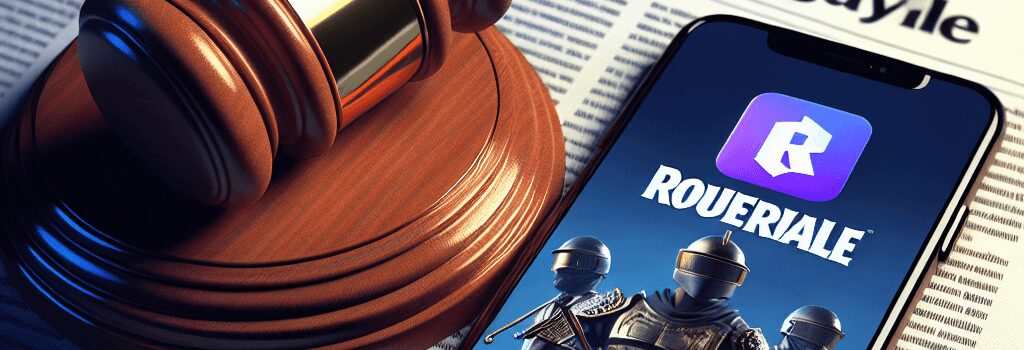Court Orders Apple to Reinstate Fortnite on iOS

In a landmark injunction issued April 30, 2025, U.S. District Court Judge Yvonne Gonzalez Rogers found that Apple willfully violated a 2021 order requiring the company to allow developers to steer users to alternative in-app payment processors. The ruling—and the subsequent threat of criminal contempt—clears the way for Epic Games to resubmit Fortnite to the iOS App Store with its own direct-payment option as early as next week.
Background of the Legal Battle
Epic Games and Apple have been at loggerheads since August 2020, when Epic deliberately added an “Epic Direct Payment” option inside Fortnite on iOS that bypassed Apple’s 30% commission. Apple promptly removed Fortnite from the App Store and sued Epic for breach of contract. A 2021 injunction required Apple to permit links and buttons directing users to external payment sites. Apple’s subsequent “compliance plan” underwent years of appellate review until the Supreme Court refused to hear Apple’s final appeal in January 2024.
Judge’s Findings: Anticompetitive Conduct and Cover-Up
In her 25-page order, Judge Gonzalez Rogers cataloged internal emails and memos showing that Apple executives, including VP of Finance Alex Roman, intentionally drafted a policy that complied in form but violated the spirit of the injunction. According to the court, Apple’s public testimony misled the judge and masked a strategy to maintain its revenue stream:
- Apple’s in-court statements contrasted sharply with internal documents proving it knew exactly how to implement true third-party payment links but chose not to.
- The judge found that Roman’s testimony under oath contained outright falsehoods and that CEO Tim Cook personally declined to adopt the less-restrictive options presented by Apple’s engineering teams.
- The behavior was characterized as a “clear and convincing violation” and referred to the Northern California District Attorney for potential criminal contempt proceedings.
Epic’s Next Steps
Epic CEO Tim Sweeney announced in a Zoom call that Fortnite will return to iOS “next week,” offering users a choice between Apple’s built-in StoreKit payments and Epic’s cheaper, web-based Epic Direct Payment—mirroring the August 2020 rollout that saw roughly 50% of users switch to Epic’s 20%-cheaper option despite the extra registration step.
Technical Implications for In-App Payment Integration
Apple must now update its App Store Review Guidelines and App Store Connect tooling to accommodate external payment SDKs. Key technical considerations for developers include:
- Integration with external payment gateways that comply with PCI DSS Level 1, including tokenization and end-to-end encryption.
- Implementation of 3D Secure 2.0 authentication flows alongside existing StoreKit 4 APIs.
- Potential modifications to FairPlay DRM enforcement in iOS 17.5+ to allow hybrid payment flows.
- Changes to App Store metadata rules to permit “link-out” buttons triggering web-based registration and checkout.
According to Jane Doe, a digital markets expert at Stanford Law, “This ruling compels Apple to provide true technical parity for third-party payments, not just a paper adjustment, fundamentally altering the iOS economic model.”
Broader Impact on the App Store Ecosystem
The decision opens the door for thousands of developers to implement alternative payment methods, potentially lowering consumer prices and stimulating innovation in mobile commerce. Industry analysts at Counterpoint Research project a 10–15% reduction in average transaction fees for apps that adopt hybrid payment strategies. However, security teams will need to vet external payment providers carefully to avoid introducing vulnerabilities or non-compliant payment flows.
Global Repercussions and Regulatory Landscape
Beyond the U.S., Apple faces similar pressures under the European Union’s Digital Markets Act (DMA), which took effect in March 2024 and mandates alternative app stores and payment systems. South Korea’s Telecommunications Business Act has already forced Apple to allow third-party billing since 2021. Experts predict that Apple’s engineering and legal teams will soon publish a unified global compliance framework in response to overlapping jurisdictions.
Expert Opinions and Next Challenges
Legal scholars like Mark Lemley of Stanford University argue that Apple’s willful disregard for court orders sets a dangerous precedent if left unchecked. On the technical side, cybersecurity specialists caution that adding external payment processors could expand Apple’s attack surface unless strict sandboxing and code-signing rules are enforced in iOS.
This is a developing story that will be updated as Apple issues technical guidelines, Epic submits its revised app, and regulators weigh in on potential criminal contempt charges.